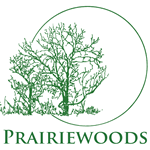Tuesday
thunder and lightning and our world
is another place no day
will ever be the same no blood
Untouchedthey know this storm in otherwheres
israel ireland palestine
but God has blessed America
we singand God has blessed America
to learn that no one is exempt
the world is one all fear
is one all life all death
all one—Lucille Clifton
American poet Lucille Clifton wrote a seven-part poem after Sept. 11, 2001, titled “September’s Song: A Poem in Seven Days.” She wrote, “… no day will ever be the same … no blood untouched …” which perfectly captured what most of us were feeling in our hearts and nearly everyone was saying—the world would never be the same again.
In the 20 years since, we’ve learned a lot about shared, communal trauma. “… no one is exempt … the world is one … all fear is one … all life, all death, all one …” In the immediate moments and aftermath of shared trauma, this sense that we are all one in experiencing the event—9/11, Covid-19, George Floyd, natural disasters and climate change—can be overwhelming and our lamentations overpowering. There seems no end to our tears and our brokenness.
But our shared experience of trauma can also lead to great acts of generosity and communal spirit. Remember how the world stopped on 9/12, and people reported an epidemic of kindness? Remember the way Earth rebounded during the global lockdowns last spring? Remember how neighbors with generators and chainsaws and food trucks reached out to neighbors after last summer’s derecho?
These moments of collective reaching out are the birthplace of hope, inspired by our natural impulse toward love. Theologian and paleontologist Pierre Teilhard de Chardin believed “that only by cultivating our moral sense of obligation to life can we overcome our present fear and anxiety for the human future. For him the fundamental law of morality is thus to liberate that conscious energy that seeks further to unify the world. This is the energy of human love …” (http://www.faculty.fairfield.edu/jmac/sj/scientists/teilhard.htm).
The energy of human love. Teilhard believed that on the day we learn to harness the energy of love we will, “for the second time in human history, discover fire.” This is the hope I find I can reach out for on the bleakest days, when it is difficult to hope for much. Czech playwright and president Vaclav Havel said, “Hope is not the conviction that something will turn out well, but the certainty that something makes sense, regardless of how it turns out.” The energy of, and human impulse toward, love makes sense—regardless of what happens next; regardless of the times when love was not the impulse acted upon.
Later in her cycle of 9/11 poems, Clifton writes about watching the St. Mary’s river flowing “as if nothing has happened” and thinking about recent events, including the birth of her granddaughter. Suddenly she is consumed with love, and not just for that new grandbaby. She claims she is:
“… consumed with love
for all of itthe everydayness of bravery
of hate of fear of tragedyof death and birth and hope
true as this river…—Lucille Clifton, from Sunday Morning, “September’s Song: A Poem in Seven Days”
On this 20th anniversary of Sept. 11, let’s give ourselves over to our innate impulse toward love. Let’s remember hope. And let us find the courage to discover fire once again.
—Jenifer Hanson, Prairiewoods director


